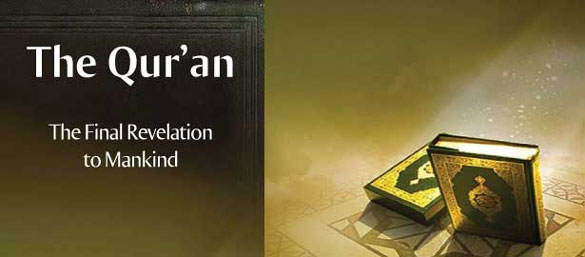By V.A. Mohamad Ashrof, New Age Islam
16 November 2020

Muslim orthodoxy was born out of the Hanbalism that developed among Muslims in the middle of the ninth century. Ahmad ibn Hanbal (780 - 855 AD) developed this theology through the literal reading of the Qur'an and traditions and the rejection of rational thought. Syed Amir Arjomand, a historian at New York State University, stated that Hanbal denigrated other movements other than his own, branding them blasphemous and calling them cults (false worship) and his mainstream. (Arjomand, p. 31)
Hanbal saw those who used reason and considered the Qur'an to be “a creation” as blasphemous and asked them to repent and be condemned to death if they refused. (Melchert, p. 240)
Imam Abu Hanifa's (699-767 AD) idea was that all that is permissible except what the Qur'an plainly forbids. However, Hanbal’s theory was on the reverse: those that are not proven as Sunnah (practice of the prophet) are prohibited. (Ramadan, p. 89) Ahmad ibn Hanbal never used watermelon in his life as he found no traditions of the Prophet related to it. (Coulson, p. 71)

The Hanbalites were generally known as traditionalists because of their complete dependence on the hadiths. (Kamal, p. 83) Hanbal rejected the philosophical approaches of some Muslim scholars. (Solahuddin, pp. 9 - 10)
Hanbal also denied analogical reasoning (qiyas) and consensus (ijma) for legislation. (Sardar, p. 16) Hanbal preferred fragile or weak hadith over qiyas. (Brown, p. 44) He included in his musnad many weak hadiths. (Brown, p. 225)
Traditionally, Hanbalism developed by rejecting the great place given to reason by the Qur'an. (Rodinson, pp. 137-138) As a result of the gradual dominance of traditional interpretation, Sharia became a set of narrow and rigid laws. (Schacht, 1964, p. 35)
Hanbali conservatism manifested itself through the stand for stoning of adulterous women, the execution of apostates, the prohibition of arts and music, and the restriction of women's social interaction etc. The fact that none of these have a Qur'anic basis was generally ignored.
Mutawakkil (822-861 AD), the Abbasid ruler, who came to power in 847 AD, was a strong follower of Hanbal. Mutawakil took the exact opposite approach to the progressive and rational thinking of his predecessor, Ma'mun. The traditionalism that Ma'mun had expelled was vigorously brought back by Mutawakkil.
Ash'arism
Ash'arism is another orthodox ideology that has dominated Muslims in the aftermath of Hanbalism. It was invented by Abu al-?asan al-Ash?ari (875 - 936 AD). Ash'ari argued that human reason was insignificant and that morality was inaccessible to human reason. (Khan, p. 36)

Ash'arism rejected the concept of natural law in support of the fatalism theory. Man moves according to God's will, like a piece of cotton that flies in the air. Ash'arism argued that right and wrong cannot be found by logic, and that it requires the knowledge of the Sunnah itself. Ash'arism supported Hanblist's claim that the Qur'an was as co-eternal with God.
Ash'arism justified blind faith. The growth of Ash'arism in the eleventh century AD made set back to scientific research in the Muslim world. (Scruton, p. 311)
Even in the nineteenth century madrassas, those who upheld the human intellect were taught to be fools. (Hurgronje, p. 210)
From the Ash'ari point of view, man does not create his own works; it so happens as per divine decree. God is also the creator of human works. Like good, all evil comes from God. Actions are neither good nor evil in their own right, and Sharia decides which of the two. Sharia also determines what justice is. Ash'ari also argued that justice was inaccessible to human intellect. All of this was rejected by Mu'tazalism (rational reading of Islam).
The Growth Of Mu'tazalism:
Mu'tazalism has argued that the Qur'an is God's creation, refuting the claim that it is co-eternal with God. They opposed the rhetoric of Ash'ari based on the fatalism theory. They retorted that good and evil are accessible to human intellect and reason. Religion commands righteousness because it is good by itself.
Mu'tazali idea of the universe which moves according to natural laws was an inspiring concept to scientific excellence. (Martin, p. 11) Mu’tazalism contributed much to the scientific growth of Muslim culture. Man is responsible for his actions. God does not impose it as the Ash'aris claim. (Fakhry, p. 47) Mortal life is a test of whether one is consciously practicing true faith and doing righteous deeds accordingly. (Friedman, p. 106) Human salvation is based on his free will.
Abbasid caliph Al-ma'mun (786-833 AD), himself was a Mu'tazali ideologue, stimulated rationality by holding discussions with religious, philosophical and scientific scholars in his palace. (Karabell, p. 48) At the same time, Al-ma'mun's attempt to impose the Mu'tazilist idea as an official perspective was severely repulsed. (Cooperson, p. 34)
Imam Abu Hanifa also shared the idea of Mu'tazalism that pure human reason can distinguish between good and evil. (Schacht, 1953, p. 35) Opponents have criticized Imam Abu Hanifa for ignoring the Sunnah by comparative rationalization (qiyas). (Ramadan, p. 53) Mu'talism argues that God does not violate the natural law. The Qur'an presents even evidence of belief in the Resurrection Day through rational analysis (Qur'an 17:50, 35: 9, 21:22).
Muhammad ibn Abdul Wahhab - The Return of the Conservatives:
Wahhabi Puritanism was strengthened from 1744 onwards by incorporating the worst elements of the Hanbali- Ash'ari ideas discussed above. Muhammad ibn Abd al-Wahhab (1703-1792) was a fierce enemy of rationalism and Shiism. (Maqsood, p. 276) Wahhabism is the manifestation of Hanbal's literalism, traditionalism, anti-rationalism, and partisan extremism. (Dallal, 1993)
Abd al-Aziz ibn Baz (1912-1999) was the official Mufti of Saudi Arabia, a prime example of Wahhabi Salafist Puritanism. Ibn Baz accepted the tradition of ‘sihr’ (black-magic) effect on the prophet; he prohibited music and images. (AbuKhalil, p. 69)
Ibn Baz's fatwa (Fatwa No. 1678) forbidding women from driving and using high heeled shoes were infamous. (AbuKhalil, p. 70) Ibn Baz also issued a fatwa for the US military to establish a base in Saudi Arabia. (AbuKhalil, p. 71) Ibn Baz forbade praying behind the Zaidiyyah sect. (AbuKhalil, p. 73) Ibn Baz made an open declaration that the earth was flat. (AbuKhalil, p. 147)
The use of the telegraph in Saudi Arabia was opposed by the Wahhabi Puritan group al- Ikhwan (founded by Abdul Aziz ibn Saud, Saudi founder) in the 1920s. As a result, the Ikhwan (not to be confused with Egypt’s Ikhwanul Muslimin) cut off telephone lines in many places as they considered the telephone, radio and automobile to be satanic. (AbuKhalil, p. 84, Call, p.76)
In 1926, Wahhabi Ikhwanis accused the government of being Satanic by using the telephone, car, and airplane and also being not hard on the Shiites. (Hiro, p. 114) Ikhwanis were military suppressed during March 1929 with 30,000 British troops following strong opposition from them. (Hiro, p. 115)
Sheikh Abdullah bin Hussein al-Sheikh, the chief qadi of the Hijaz, accused the devil of carrying the voice message over the air when the radio was introduced in Saudi Arabia. Following this, recitation of the Qur'an was transmitted through the Riyadh radio station. Al-Sheikh heard this in Makkah and withdrew his argument. Radio has been a symbol of God ever since. (Hiro, p. 121)
When King Faisal introduced television in 1965, Puritan Wahhabis attacked TV stations, accusing them of being evil. (Atwan, p. 153) Subsequently, the broadcast of the recitation of the Qur'an and prayers on television broke the accusation. (Hiro, p.122)
Nevertheless, in August 1965, the Riyadh television station was attacked by a Saudi prince, Khalid bin Musaid, and his followers. Prince Khalid bin Musaid was killed in police firing. About ten years later, in retaliation, Khalid's younger brother, Faisal ibn Musaid, shot and killed King Faisal on March 25, 1975. (Hiro, p.125)
The Kaaba was captured in 1979 under the leadership of Juhayman Saif al-Utaybi, a puritan (a former student of Sheikh Ibn Baz from 1969), with the aim of purifying Islam from all accretions (Bid’a), accusing television, car and currency are heresies added to the religion. The Kaaba was later liberated with the help of French troops (Hiro, p. 128).
The Wahhabi Puritans raised a twisted interpretation against women's education arguing that this could lead to family breakdown. (Al Munajjed, pp. 59-80) However, King Faisal (1906-1975) and his wife initiated women's education in the 1960s. King Faisal constantly reminded that it is the Qur'anic obligation of men and women to seek knowledge. (Hiro, p. 124) A large section of the Afghan Taliban still maintains the same Wahhabi stance on women's education.
Several Wahhabi Puritans attacked historical monuments, claiming to cause idolatry. They destroyed most of the Muslim historical monuments in Saudi Arabia. On February 25, 2015, ISIS, a Wahhabi Puritan group, released a two - minute video of the destruction of the cultural heritage of the Mosul Central Museum and the nearby archaeological site in Iraq. (Nance, p.280)
References:
Arjomand, Said Amir, Thinking Globally about Islam, in Oxford Handbook of Global Religions (ed: Mark Juergensmeyer), Oxford University Press: Oxford, 2003
AbuKhalil, As`ad, Battle for Saudi Arabia, New York: Seven Stories Press, 2004
Al Munajjed, Mona, Women in Saudi Arabia Today, New York: St. Martin's Press, 1997
Atwan, Abdel Bari, The Secret History of al-Qaeda, Berkeley: University of California. Press, 2006
Brown A.C, Jonathan, Misquoting Muhammad, London: Oneworld, 2014
Call, Steve, Ghost Wars, Harmondsworth: Penguin, 2004
Cooperson, Michael, Classical Arabic Biography: The Heirs of the Prophets in the Age of al-Ma'mun,Cambridge: Cambridge University Press, 2000
Coulson, Noel James, A History of Islamic Law, Edinburgh, Edinburgh University Press, 1994
Dallal, Ahmad, The Origins and Objectives of Islamic Revivalist Thought 1750-1850, Journal of the American Oriental Society 113.3, 1993
Fakhry, Majid, Ethical Theories in Islam, Leiden: Brill, 1991
Friedmann, Yohannan, Tolerance and Coercion in Islam, Cambridge: Cambridge University Press, 2003
Hiro, Dilip, Islamic Fundamentalism, London: Paladin Gafton Books, 1988
Hurgronje, Snouck, Mekka in the Latter Part of the 19th Century, Leiden: Brill, 2007
Kamali, M. Hashim, Shari'ah Law: An Introduction, Oxford: Oneworld, 2009
Karabell, Zachary, People of The Book: The Forgotten History Of Islam And The West, London: John Murray Publishers, 2008
Khan, Ali, Hisham M. Ramadan, Contemporary Ijtihad, Edinburgh: Edinburgh University Press, 2011
Maqsood, Ruqaiyyah Waris, Islam Need to Know? London: HarperCollins, 2012
Martin C. Richard C; Woodward, Mark R; Dwi S Atmaja, Defenders of Reason in Islam, London: Oneworld Publications, 1997
Melchert, Christopher, The Adversaries of Ahmad Ibn Hanbal, Aabica April 1997
Michael, Cooperson, Classical Arabic Biography: The Heirs of the Prophets in the Age of Al-Ma'mun, Cambridge: Cambridge University Press, 2000
Nance, Malcolm, Defeating ISIS, New York: Skyhorse Publishing, 2016
Ramadan, Tariq, Radical Reform: Islamic Ethics and Liberation, New York: Oxford University Press, 2009
Rodinson, Maxim, Islam and Capitalism, Austin: University of Texas Press,1978
Sadar, Ziauddin, Merryl Wyn Davies, The No-Nonsense Guide to Islam, London: Verso, 2004
Schacht, Joseph, An Introduction to Islamic Law, Oxford: Oxford University Press-Clarendon, 1964
Schacht, Joseph, New Sources for the History of Muhammadan Theology, Studia Islamica, Vol 1, 1953, 23-42
Scruton, Roger, Green Philosophy, London: Atlantic Books, 2012
Solahudin, The Roots of Terrorism in Indonesia, translated by Dave McRae, Sydney: UNSW Press, 2013
-----
V.A. Mohamad Ashrof is the Joint Secretary of Forum for Faith and Fraternity Kerala

No comments:
Post a Comment